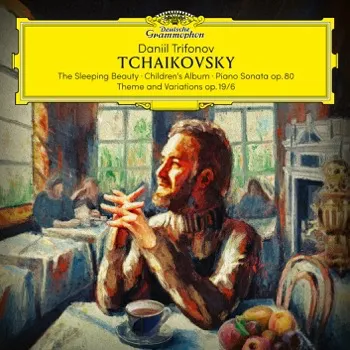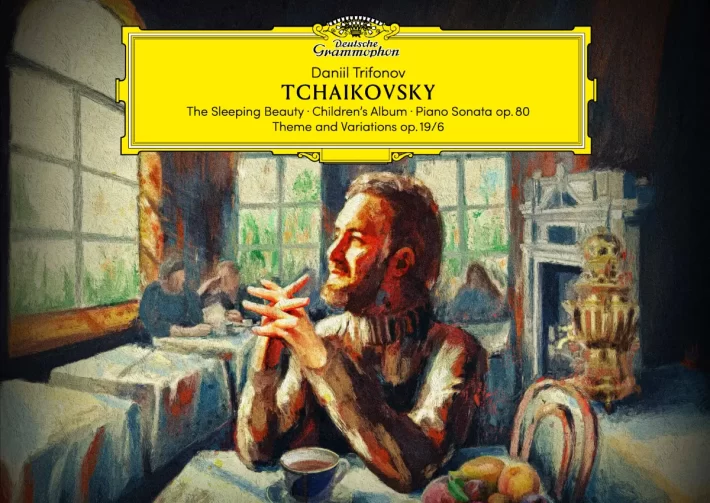Daniil Trifonov opens this interesting and well-built program with Tchaikovsky’s Theme and Variations from the Six Morceaux, Op. 19. Since Gilels performed this piece decades ago, it has been rarely heard on stage or in the studio. Pavel Kolesnikov included the entire opus in his impressive Tchaikovsky album that also featured The Seasons (Hyperion, 2014), and it was included in Valentina Lisitsa’s important set of Tchaikovsky’s complete piano works (Decca, 2019 – reviewed here). Trifonov’s performance adds a sense of discovery and shows utter conviction in the piece’s quality.

The program is cleverly built as a full 90-minute recital, with the relatively denser and longer pieces placed second in each half. After the variations comes the Op. 80 Piano Sonata, composed in the last year of Tchaikovsky’s Conservatory period despite its late opus number. Trifonov can be a bit blurry and over-pedal in the second theme of the first movement (CD 1, track 11, 4’45”). Turn to Vadym Kholodenko (Harmonia Mundi, 2021) for more clarity, though with the limited ambience of the Fazioli Hall in Florence. Trifonov’s slight blur works well in the final movement, where it sounds more haunting. It’s hard to disassociate the Scherzo movement of this sonata from its later transformation as the third movement of the First Symphony, yet Trifonov’s playing feels more at home on the piano than Kholodenko’s, who impressively imitates the orchestration.
Azusa Ueno wrote a positive review of Denis Kozhukhin’s Somnia, which included the entire set of Tchaikovsky’s Children’s Album, Op. 39. If Kozhukhin’s recording frames the images from a doll’s viewpoint, Trifonov takes a more mature and darker view. Hear, for example, the bleak sorrow he brings in “The Sick Doll” (CD 2, track 6), compared with Kozhukhin’s more straightforward rendition. Trifonov emphasizes the march elements in “The Doll’s Death” (track 7), while Kozhukhin is more sombre. Both performances are superb in their own right.
Mikhail Pletnev’s piano arrangement of The Sleeping Beauty (Op. 66) was recently featured on Andrey Gugnin’s album of piano-transcribed ballet music (Hyperion). This arrangement best takes advantage of the instrument’s capabilities, which Trifonov exploits fully. Listen to the repeated notes in “Vision” (CD 2, track 27) and how each stroke on the same key is charged with meaning, then how Trifonov switches to a wonderful legato in the next movement. As with the Children’s Album, I wouldn’t want to be without either version, but Trifonov offers the more balanced program (Gugnin includes four ballets by Tchaikovsky and Stravinsky in a row, which can be too much of a good thing to hear in one sitting).
I’ve enjoyed this album not only for the playing but also for the intelligent programming. The booklet includes an article by Oscar Alan that combines a few quotes from Trifonov and background on the pieces, along with some questionable assertions about the personal and emotional origins of the Children’s Album pieces. The recording, made at Mechanics Hall in Worcester, Massachusetts, is exemplary – close and intimate in soft passages, while expanding and opening up in the louder ones.
Recommended Comparisons
Gilels (sonata) | Kholodenko (sonata) | Kozhukhin (Op. 39) | Gugnin (Op. 66) | Lisitsa

Album Details |
|
|---|---|
| Album name | Tchaikovsky |
| Label | Deutsche Grammophon |
| Catalogue No. | 4867471 |
| Artists | Daniil Trifonov, piano |



















